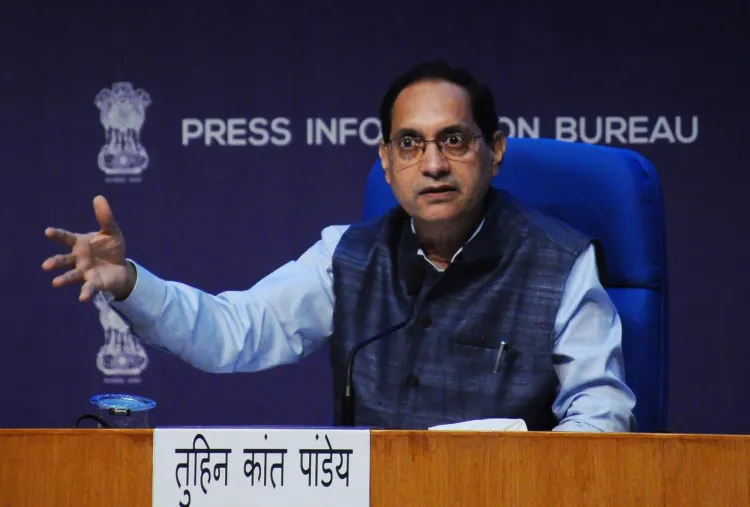Did SEBI Just Ease IPO Shareholding Rules for Large Companies?

Synopsis
Key Takeaways
- SEBI has relaxed MPS norms for large companies.
- New timeline: 15% MPS in 5 years, 25% in 10 years.
- Facilitates easier fundraising and reduces immediate stake dilution pressure.
- REITs and InVITs are now classified as equity instruments.
- New website enhances access for foreign portfolio investors.
New Delhi, Sep 12 (NationPress) The Securities and Exchange Board of India (SEBI) has introduced a set of regulatory adjustments following its board meeting, significantly easing the minimum public shareholding (MPS) criteria for large firms intending to conduct initial public offerings (IPOs).
As per SEBI's announcement, firms with a market capitalization ranging from Rs 50,000 crore to Rs 1 lakh crore will now have an extended period to fulfill public shareholding mandates.
These companies will need to reach a 15 percent MPS within five years post-listing and a 25 percent MPS within a decade.
Currently, the stipulation is to achieve the 25 percent threshold within three years.
This initiative is anticipated to facilitate fundraising processes and alleviate the urgency for companies to swiftly dilute substantial stakes, which could adversely influence stock prices.
Industry experts believe this decision will also diminish the necessity for companies to pursue individual exemptions from SEBI.
In another notable decision, SEBI has classified real estate investment trusts (REITs) and Infrastructure Investment Trusts (InVITs) as equity instruments.
This alteration will simplify mutual fund investments in these vehicles and is expected to boost retail investor engagement in these asset classes.
SEBI also revised governance norms for stock exchanges and depositories, aimed at enhancing transparency and oversight within market entities.
Moreover, the regulator has eased eligibility requirements for investment advisors and research analysts.
Going forward, individuals with a degree in any field will be eligible to apply, although obtaining the NISM certification remains a prerequisite.
Furthermore, SEBI has simplified the requirements concerning credit reports, net worth, and asset-liability statements.
To facilitate access for international investors, SEBI has launched “India Market Access,” a new website dedicated to foreign portfolio investors (FPIs).
This portal will offer comprehensive regulatory and procedural information for those interested in investing in Indian markets.









